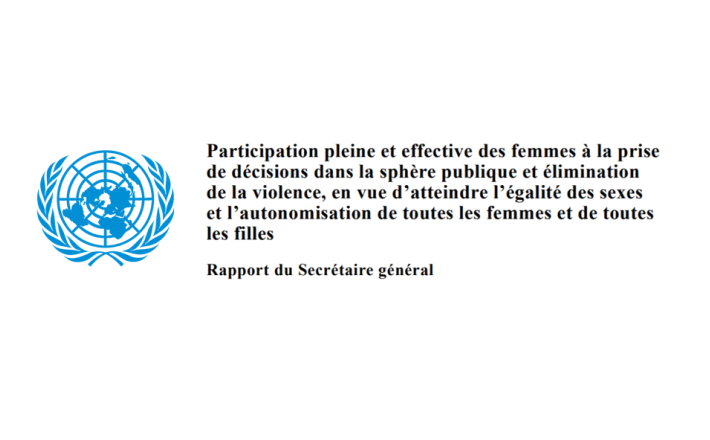Report of the United Nations Secretary-General on women's participation in public life
Source: United Nations
This report contains an examination of global trends, persistent barriers and opportunities with regard to women’s full and effective participation and decision-making in public life, as well as the elimination of violence, for achieving gender equality and the empowerment of all women and girls. Progress made in women’s representation at different levels, mainly through legislated gender quotas, and the impact of women’s participation in decision-making and civil society, are acknowledged in the report.
Systemic challenges, especially the increasing levels of violence perpetrated against women in public life and certain enduring harmful norms, require urgent attention, as do specific challenges encountered by marginalized women who face multiple and intersecting forms of discrimination. States can facilitate a more inclusive and enabling environment in which all women could participate in public life through more ambitious targets, increased political will, sustainable financing and gender-responsive institutional arrangements.
The coronavirus disease (COVID-19) pandemic has compounded challenges to decision-making, and, while women have rarely been included in decision-making on COVID-19 response efforts in equal numbers to men, in several countries where they have been in leadership positions, the response to the pandemic has been particularly effective. The report concludes with recommendations for consideration by the Commission on the Status of Women.
Click here to access the report.

This report contains an examination of global trends, persistent barriers and opportunities with regard to women’s full and effective participation and decision-making in public life, as well as the elimination of violence, for achieving gender equality and the empowerment of all women and girls. Progress made in women’s representation at different levels, mainly through legislated gender quotas, and the impact of women’s participation in decision-making and civil society, are acknowledged in the report.
Systemic challenges, especially the increasing levels of violence perpetrated against women in public life and certain enduring harmful norms, require urgent attention, as do specific challenges encountered by marginalized women who face multiple and intersecting forms of discrimination. States can facilitate a more inclusive and enabling environment in which all women could participate in public life through more ambitious targets, increased political will, sustainable financing and gender-responsive institutional arrangements.
The coronavirus disease (COVID-19) pandemic has compounded challenges to decision-making, and, while women have rarely been included in decision-making on COVID-19 response efforts in equal numbers to men, in several countries where they have been in leadership positions, the response to the pandemic has been particularly effective. The report concludes with recommendations for consideration by the Commission on the Status of Women.
Click here to access the report.